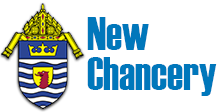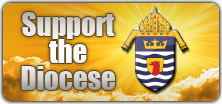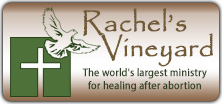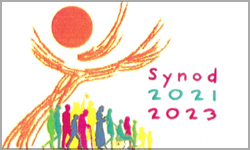November 14, 2021
Sunday
On the Eucharist
My dear Brothers and Sisters in Christ,
Praised be Jesus Christ, who has given us His Paschal Mystery, as a living memorial of His Passion, Death, and Resurrection! "To receive communion is to receive Christ himself who has offered himself for us" (Catechism of the Catholic Church, no 1382).
 I am writing to you for our diocesan Eucharistic Congress. Our priests are joining me to celebrate with you our faith in the Eucharist of Our Lord and Savior Jesus Christ. The purpose of my pastoral letter is to reflect on the Church’s Eucharistic teaching. A complete summary of this teaching is impossible in a letter, but we can provide a brief reminder. The Eucharist is near and dear to us Catholics because this sacrament, like all sacraments, comes from our Lord Himself. "I am the bread of life" (John 6:48), He proclaimed and added, “Whoever eats my flesh and drinks my blood has eternal life, and I will raise him on the last day" (John 6:56). Let us begin with where we find the Eucharist in the Sacred Scriptures.
I am writing to you for our diocesan Eucharistic Congress. Our priests are joining me to celebrate with you our faith in the Eucharist of Our Lord and Savior Jesus Christ. The purpose of my pastoral letter is to reflect on the Church’s Eucharistic teaching. A complete summary of this teaching is impossible in a letter, but we can provide a brief reminder. The Eucharist is near and dear to us Catholics because this sacrament, like all sacraments, comes from our Lord Himself. "I am the bread of life" (John 6:48), He proclaimed and added, “Whoever eats my flesh and drinks my blood has eternal life, and I will raise him on the last day" (John 6:56). Let us begin with where we find the Eucharist in the Sacred Scriptures.
In the Gospels and in St. Paul we read of how our Lord instituted the Eucharist (cf. Matthew 26:26-29; Mark 14:22-25; Luke 22: 14-20; cf. I Corinthians 11:23-26). He took bread and wine and spoke those sacred words over them: "This is my body" and "This is my blood of the covenant" (cf. Matthew 26:26, 28). St. John provides an extended discourse on Jesus Christ as the Bread of Life (cf. John 6:22-69).
In instituting the Eucharist in the context of a Passover meal, our Lord brings forth the true meaning of all the ritual sacrifices and offerings by which the world was being prepared for His Sacrifice on the Cross. For the Jews, the Passover was a remembrance of and participation in the freedom God had given them from their Egyptian slavery (cf. Exodus 12: 11-17) and, most importantly, the promise God was making with them and fulfilling in them, a covenant promise ratified at Mount Sinai (cf. Exodus 24:3-8).
Within this setting of a sacred ritual meal, our Lord seats Himself with His apostles and institutes the Sacrament of His Body and Blood and the ministerial Priesthood. The very words He speaks inaugurate a new covenant in His Blood (cf. I Corinthians 13:25). In participating in the Eucharist, the Christian celebrates redemption from the slavery to sin by recalling our Lord's redemptive Passion, Death and Resurrection. Holy Thursday, Good Friday, and Easter are united in one sacred action in the Holy Mass. Our Lord speaks of this participation as a memorial, when He says, "Do this in remembrance of me" (I Corinthians 11:24).
In the Eucharist, the whole Church is united with the sacrificial offering of Christ on the Cross. We are not mere bystanders but actual participants, attentively listening and uniting ourselves to Christ's sacrifice. The Eucharist makes present the reality It celebrates. As St. Paul will write, "For as often as you eat this bread and drink the cup, you proclaim the death of the Lord until he comes" (I Corinthians 11:26). As we recall St. Paul's words, it is doubly important for us to remember why we proclaim the death and Resurrection of the Lord.
By the death of the Lord, we are saved. Why? Because He offers Himself up in exchange for us and thereby redeems us. Our Lord states this clearly, when He says, "Just so, the Son of Man did not come to be served but to serve and to give his life as a ransom for many" (Matthew 20:28). The same is repeated later in the Gospels. "For the Son of Man did not come to be served but to serve and to give his life as a ransom for many" (Mark 10:45). The word ransom might puzzle us at first. A ransom is paid to secure the release of a hostage. However, did not humanity find itself held hostage by the devil after the fall of Adam and Eve? Man chose a life of sin, his own will over God's. "[M]an ... placed himself in the devil's power by going along with him" (St. Thomas Aquinas, Summa Theologiae, 3a, 48, 4, 2). In this sense St. Paul can refer to the slavery to sin (cf. Romans 6: 16; 7: 14; 8:21). Into this slavery, we are born, but Christ rescues, redeems, and frees us. Then, to whom is this ransom paid? Certainly, it is paid not to the devil but to God, for it is God's perfect justice that is offended by the sin of man. As St. Thomas Aquinas will explain, "Hence, as far as God was concerned, justice demanded the ransom of man" (ibid.). The supreme act of love is that God wills to do this Himself, for indeed what can man offer to God for all God has given him (cf. Psalm 116: 12)? One of the most sublime prayers in the Church's liturgy, the Easter Proclamation or Exsultet, summarizes all that could be said in these words: "O love, O charity beyond all telling, to ransom a slave you gave away your Son!"
All this love, this offering, this ransom, is inseparable from sacrifice. Indeed, this sacrifice is the same sacrifice of the Eucharistic celebration, in every Holy Mass. Gazing upon the Cross we see all the rich implications of expiation, our redemption poured out and unrestrained by the restrictions of time, because in the Eucharist we participate fully in the moment of redemption, here and now.
The Letter to the Hebrews reflects on this living sacrifice of our Lord. Permit a lengthy quotation from this sacred text, one of the most beautiful in all the New Testament:
But when Christ came as high priest of the good things that have come to be, passing through the greater and more perfect tabernacle not made by hands, that is, not belonging to this creation, he entered once for all into the sanctuary, not with the blood of goats and calves but with his own blood, thus obtaining eternal redemption. For if the blood of goats and calves and bulls and the sprinkling of a heifer's ashes can sanctify those who are defiled so that their flesh is cleansed, how much more will the blood of Christ, who through the eternal spirit offered himself unblemished to God, cleanse our consciences from dead works to worship the living God. (Hebrews 9: 11-14)
In this one, single sacrifice, we participate each time we attend the Eucharistic celebration. Here the Eternal Will of God, the patriarchs and prophets of the Old Covenant, the prefigured offerings of Melchizedek (cf. Genesis 14: 18-20; Hebrews 7: 1-3), the sacrifice of Abraham (cf. Genesis 15; 22; etc.), the writings of the Wisdom authors, the dreams and hopes of sinful humanity-all this and so much more-converge in this perfect sacrifice. "From his fullness we have all received, grace in place of grace" (John 1:16). Of this new bread from heaven (cf. John 6:32) we eat and are satisfied (cf. John 6: 12).
There are some today who will protest and ask, with all this emphasis on sacrifice, where is Eucharist as community meal? To this I would answer that the meaning of the communal meal is included in the sacrificial and redemptive nature of the Eucharist. St. Thomas Aquinas explains that there are three temporal dimensions to the Eucharist. The first is the past, for the Eucharist recalls and makes present the Passion of our Lord. In this the Eucharist is sacrifice. The second is the present, which is the unity of the Body of Christ, the Church, expressed in the Eucharist by our communion with Him and one another in Him. The Eucharist celebrates that unity. Finally, the third is the future, where the Eucharist foretells our union with God in eternal life at the heavenly banquet (Summa Theologiae, 3a. 73, 4). And, so, we can speak of our Holy Communion, participation in the Holy Sacrifice of the Mass or Eucharistic Sacrifice, our foretaste of the heavenly banquet, our communion with the Lord, and in so doing, exclude nothing of the reality that we encounter in the Eucharist. There is no contradiction, only unity. "Enough!" we must shout, to this artificial dichotomy that places adoration and communion, partaking and worship in opposition. In the words of St. Augustine, "[H]e walked here in the flesh, and he gave this flesh to us to eat for our salvation, flesh which no one eats unless he has first adored" (Enarrationes in Psalmos 89. 9).
When I visit the children in our religious education programs, preparing for Confirmation, or in our Catholic Schools, I invite their questions. One little girl asked: "Have you ever seen any miracles?" I paused and thought. I could have spoken of the healing I have witnessed through the Sacrament of the Sick, or the lives of poor sinners transformed in conversion through the Sacrament of Penance, or the wonder and awe of newly baptized at the Easter Vigil, or the sheer joy of a young man giving his life to Christ in the Sacrament of Holy Orders, or the sublime beauty of a man and woman living out the Sacrament of Matrimony, overcoming their difficulties with the help of God’s Grace — yes, of this and much more could I have spoken. However, is there something greater than the miracle that occurs on each of our altars, when our Lord makes Himself present, defying the restrictions of time, descending to us, raising us up, as we repeat and paraphrase the words of the centurion in the Gospel: "Lord, I am not worthy to have you enter my roof; only say the word and my servant will be healed" (Matthew 8:8). The food of angels becomes food for us. Here is our manna. Here is the pledge of our salvation.
This is the Good News, our redemption in Christ, for which the Eucharist is a living remembrance. For this supreme Grace, may we ever be thankful, for that, in the language of the New Testament, is what Eucharist means, as I remain
Sincerely yours in our Lord,

+(Most Rev.) Glen John Provost
Bishop of Lake Charles
















